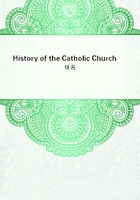
第149章
He emphasised the idea of a universal priesthood, which he thought had been somewhat neglected by the leaders of the Lutherans, advocated for those who were destined for the ministry a training in spiritual life rather than in theological lore, encouraged good works as the best means of securing eternal bliss, objected to polemical discussions, and welcomed the establishments of private societies for the promotion of Christian perfection. About the same time Franke and Anton undertook a similar work in Leipzig by founding the /Collegium Philobiblicum/ principally for students and members of the university.
This society was suppressed at the instigation of the Lutheran faculty of theology, and the two founders of it were dismissed. In a short time Spener was appointed to an office in Berlin and was received with great favour at the court. By his influence three of his leading disciples, Franke, Anton, and Breithaupt were appointed professors in the University of Halle, which from that time became the leading centre of Pietism in Germany. Students flocked to Halle from all parts of Germany, from Denmark, and from Switzerland. An attempt was made to explain away Luther's teaching on good works, and to insist on the practical as distinct from the intellectual aspect of Christianity.
This relegation of dogma to a secondary place, and the establishment of private assemblies to supplant the ecclesiastical organisation and the established liturgy, led to the development of separatist tendencies and ultimately to the promotion of dogmatic indifference.
It is a noteworthy fact that Semler was one of the students most sincerely attached to Pietism at Halle.